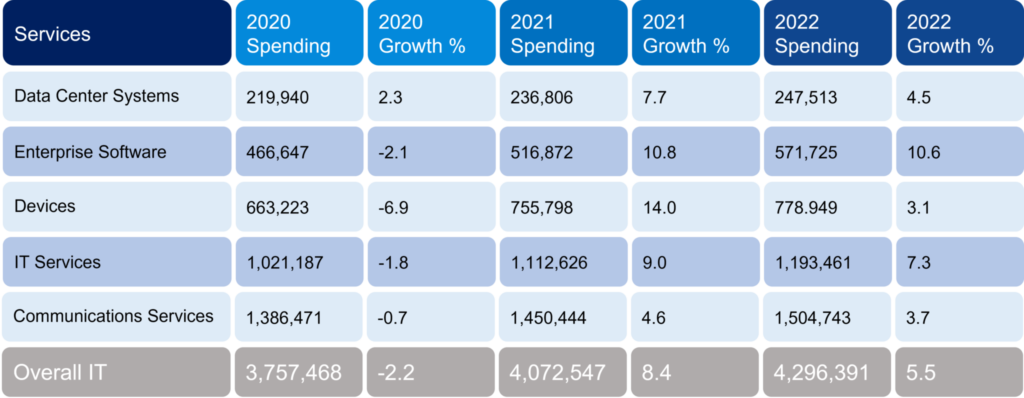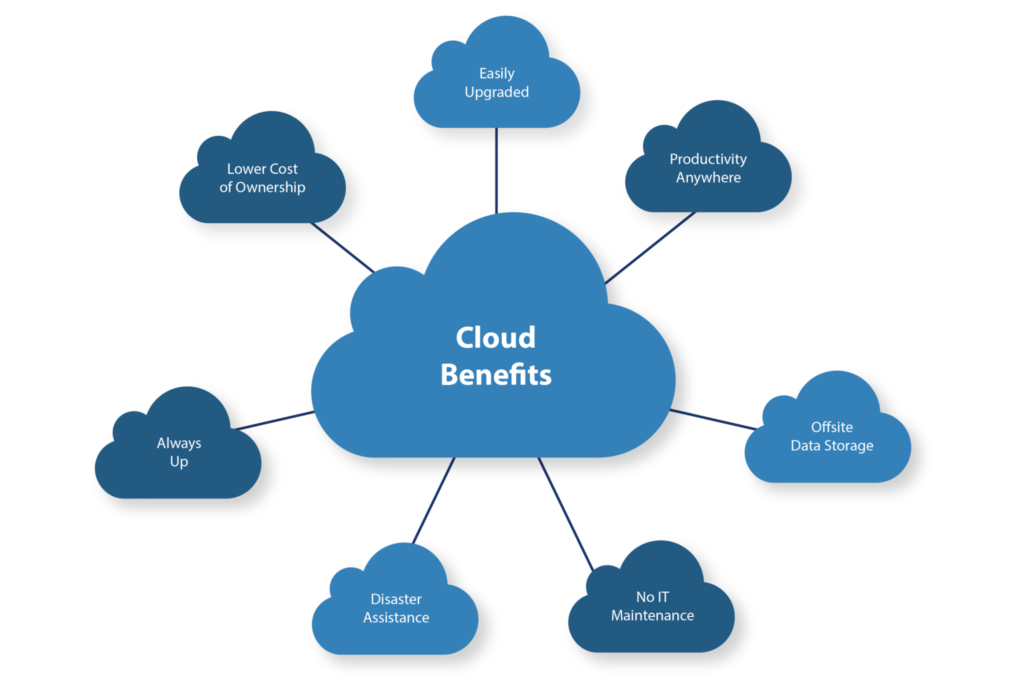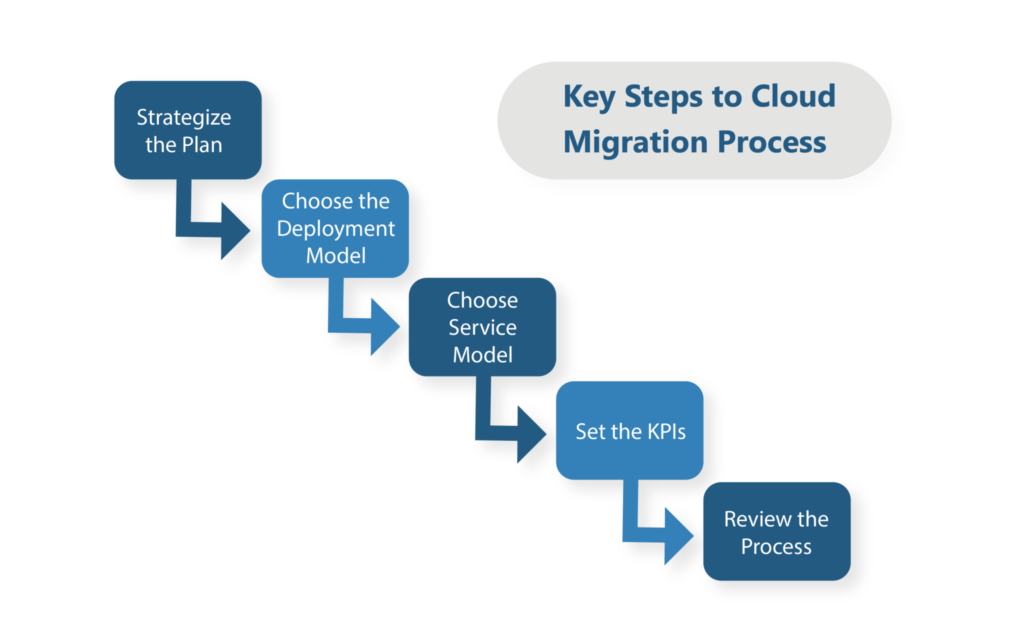The COVID-19 pandemic has pushed the global economy into working remotely overnight. However, it’s 2020, and enterprises are no longer dependent on physical networks and servers. Cloud computing has emerged as an essential technology to ensure that businesses and organizations don’t crack under this unprecedented pressure. Besides, containment efforts have disrupted the harmony between production and demand, forcing companies and the government to adopt a more holistic cloud-based technology to deal with increased consumer demand. This shift towards digital transformation services has highlighted the need for scalable and flexible solutions that can adapt to rapidly changing circumstances.
The Rise of Cloud – Trends in Growth and Adoption
Global enterprises have already been progressing towards complete cloud adoption, and the pandemic has served as a mere catalyst for the same. While remote working has become the new normal, concepts such as ‘cloud-only approach’ and ‘cloud-first’ have become the cornerstone of most enterprises and governments worldwide.
The global pandemic, coupled with the economic recession, has pushed companies to invest more in operations critical to keeping the business running. This cost-optimization move has impacted most IT segments to witness a steep fall in growth.
Gartner predicts that even though global IT expenditure to total $4.1 trillion in 2021, an increase of 8.4% from 2020. Worldwide end-user spending on public cloud services is forecast to grow 18.4% in 2021 to total $304.9 billion, up from $257.5 billion in 2020.

Cloud – The Need of the Hour

The pandemic has wreaked havoc with the global economy causing organizations to struggle with financial uncertainty. As a result, organizations turn to technologies and strategies to create a more robust and efficient IT infrastructure. Cloud infrastructure solutions and services are effective, fast, and cheap to deploy. Therefore, in the context of the pandemic, cloud adoption becomes imperative to ensure that businesses thrive even in the face of looming adversity.
- In-house data centers take up much of office space and produce immense heat. Cloud storage and applications alleviate these problems, significantly reducing energy expenditures, hardware costs, and maximizing space.
- Public cloud providers offer services on a pay-as-you-go basis. So, companies don’t have to pay for software they don’t use. Further, the cloud has lower up-front costs than in-house solutions, providing flexibility and savings.
- Cloud solutions dramatically reduce labor and maintenance costs. Since the hardware is stored in off-site locations and owned by a vendor, the in-house IT staff are less demanding. So companies with limited resources can reduce staff size and do away with expensive third-party hardware maintenance bills.
- Cloud computing in times of COVID-19 has ensured business continuity even though workers and employees have been mandated to work remotely. Cloud solutions have reduced adoption and deployment times that have significantly boosted the workforce productivity when needed.
Steps to Migrate to Cloud

- Strategize: Understand the business’s requirements with clarity on the type of data and operations that need to be moved to the cloud.
- Choose the deployment model: You can go for a public cloud provider, a private one, or a hybrid. There are single-cloud platforms and multi-cloud ones, where you can use different cloud providers at various stages of operations.
- Choose service model: It could be Infrastructure-as-a-Service (IaaS), Software-as-a-Service (SaaS), or Platform-as-a-Service (PaaS).
- Set the KPIs: Define metrics such as app performance, user experience, and infrastructure parameters to determine how your cloud solution should operate.
- Review: Once you have made the shift to the cloud, ensure that all the requirements are fulfilled based on KPIs.
Areas Impacted by the Cloud in the COVID-19 Era – Use Cases
The COVID-19 onslaught has hastened the process of digital transformation and IT modernization in the public service sector. From online education to emergency hotlines, cloud technology has become a boon in times of this crisis when citizens have turned to the public healthcare facilities, educational institutions, and other public sector enterprises for help. For instance, Spain’s regional government in Madrid has partnered with Google Cloud Platform to develop an app that helps citizens self-assess the symptoms of COVID-19 and provide guidance, easing the burden on the healthcare system. In another example, Italy’s Education Ministry has successfully leveraged Google tools like Google Meet to shift school students completely to remote learning rapidly. Source
Likewise, businesses and companies in the private sector have been quick to harness the cloud’s utility. The mandatory remote work policy has nudged organizations to adopt virtual desktop environments to get their employees up and running. For instance, Azure’s Windows Virtual Desktop platforms provide quick access to critical applications and data from any device, outside or inside the office. The interface is familiar, and even remotely working employees can avail applications and files.
This rapid adoption of digital transformation services has highlighted the importance of agile solutions and the ability to quickly pivot to new technologies to meet evolving needs.
How Can Worxwide Help You?
The pandemic is temporary, but the coming years will witness more and more businesses and governments demanding cloud-based digital proposal documents ensuring cost-effective and high-quality services. As a bid consulting and management firm, here’s how Worxwide can help you with proposal solution:
- Help you respond to RFPs related to the cloud on behalf of you.
- Help you provide technical writing to cloud solutions.
- Help you connect to the right partners.
The widespread acceptance of cloud technology due to COVID-19 is paving the way for an era of rapid innovation. Cloud-enabled enterprises and agencies are not just future-ready for disasters but also equipped to recover while adapting to new markets and customer demands quickly. Indeed, the cloud has immense potential that can be leveraged to accelerate growth in trying times such as these.
Worxwide Consulting (formerly known as BidsandBeyond) offers RFP consulting services to help IT companies find, write, manage, and win more bids. Contact our bid experts for a higher win probability, time-efficient, and cost-effective services with specialized IT sales enablement services. Worxwide is based out of the US, UK, and India, offering bid consulting, sales transformation, user experience, and customer experience design services.
tx, USA

London, UK

India


